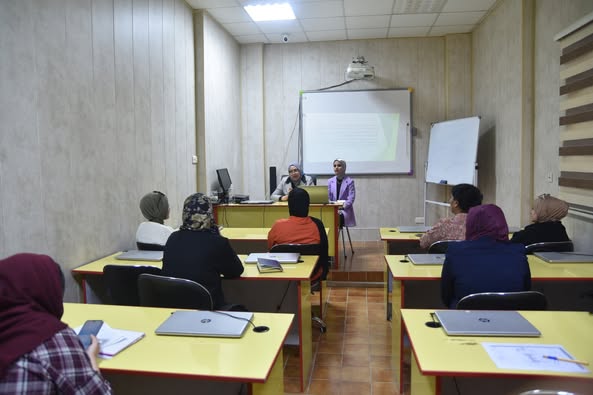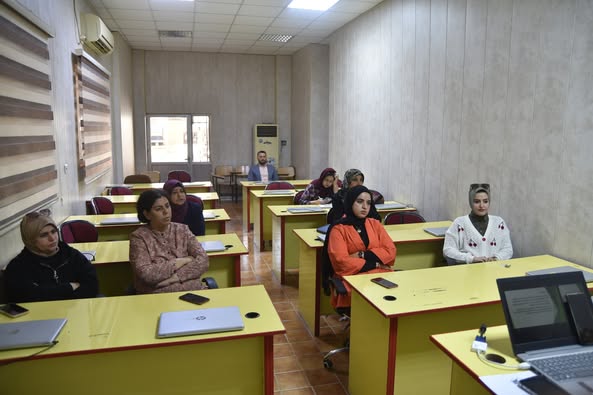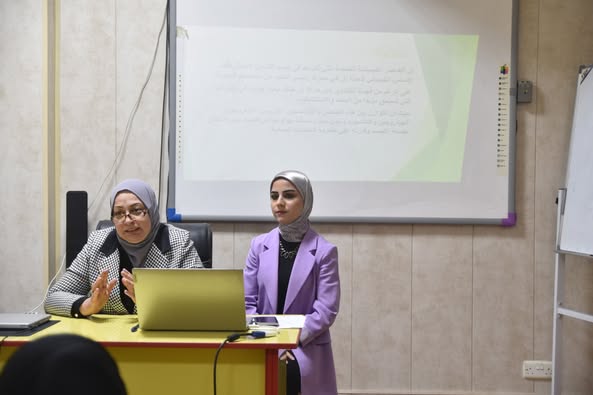Under the patronage of Professor Dr. Sameera Naji Khdim, Dean of the College of Science for Women, the Continuing Education Unit, in collaboration with the Department of Chemistry, organized a workshop titled “The Five Elements and Their Impact on Human Health.” The workshop was presented by Dr. Areej Shawkat Hamid, Head of the Continuing Education Unit, and Assistant Chemist Hanan Khdim Talal, and took place in the Al-Hakeem Hall, with the attendance of faculty members, staff, and students from the college.
The workshop addressed the essential chemical elements that constitute approximately 97.5% of the human body, namely oxygen, carbon, hydrogen, nitrogen, and calcium. The role of each element in vital processes was explained. Oxygen is essential for cellular respiration and energy production, while carbon is involved in the formation of all organic compounds and forms the basis for biological molecules such as proteins, fats, and carbohydrates. Hydrogen is a key element in the formation of water and organic compounds and contributes to chemical reactions within the body. Nitrogen is the primary component of amino acids, which build proteins, and plays a significant role in the formation of nucleic acids like DNA and RNA. Calcium is crucial for bone and dental health and plays a major role in blood clotting and nerve signaling processes.
The workshop emphasized the importance of balancing these elements to maintain human health. It recommended adhering to a healthy, balanced diet rich in essential nutrients, along with regular physical exercise to enhance oxygen transport and improve circulation. It also highlighted the importance of drinking adequate amounts of water to support vital processes. Additionally, the recommendations stressed the significance of conducting regular tests to monitor the levels of these chemical elements in the body and maintain their balance.
The workshop concluded with scientific discussions between the lecturers and participants, emphasizing the role of health awareness in improving quality of life and promoting disease prevention.











